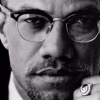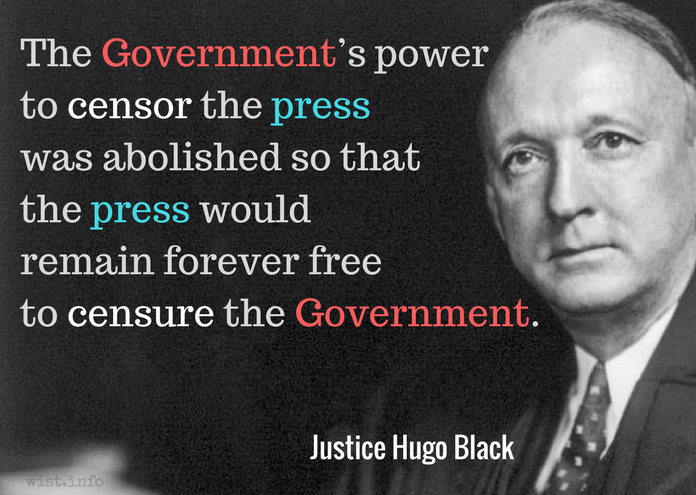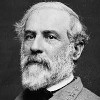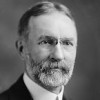If you’re not careful, the newspapers will have you hating the people who are being oppressed, and loving the people who are doing the oppressing.
Malcolm X (1925-1965) American revolutionary, religious leader [b. Malcolm Little]
Speech, Audubon Ballroom, Harlem, New York (13 Dec 1964)
(Source)
Quotations about:
fourth estate
Note not all quotations have been tagged, so Search may find additional quotes on this topic.
It is a melancholy truth that a suppression of the press could not more compleatly deprive the nation of its benefits, than is done by its abandoned prostitution to falsehood. Nothing can now be believed which is seen in a newspaper. Truth itself becomes suspicious by being put into that polluted vehicle. […] I will add that the man who never looks into a newspaper is better informed than he who reads them; inasmuch as he who knows nothing is nearer to truth than he whose mind is filled with falsehoods & errors. He who reads nothing will still learn the great facts, and the details are all false.
Thomas Jefferson (1743-1826) American political philosopher, polymath, statesman, US President (1801-09)
Letter to John Norvell (11 Jun 1807)
(Source)
Right conclusions are more likely to be gathered out of a multitude of tongues, than through any kind of authoritative selection. To many this is, and will always be, folly; but we have staked upon it our all.
Learned Hand (1872-1961) American jurist
United States v Associated Press, 52 F. Supp. 362, 372 (1943)
(Source)
Political or military commentators, like astrologers, can survive almost any mistake, because their more devoted followers do not look to them for an appraisal of the facts but for the stimulation of nationalistic loyalties.
George Orwell (1903-1950) English writer [pseud. of Eric Arthur Blair]
“Notes on Nationalism” (May 1945)
(Source)
In the First Amendment, the Founding Fathers gave the free press the protection it must have to fulfill its essential role in our democracy. The press was to serve the governed, not the governors. The Government’s power to censor the press was abolished so that the press would remain forever free to censure the Government. The press was protected so that it could bare the secrets of government and inform the people. Only a free and unrestrained press can effectively expose deception in government. And paramount among the responsibilities of a free press is the duty to prevent any part of the government from deceiving the people and sending them off to distant lands to die of foreign fevers and foreign shot and shell.
Hugo Black (1886-1971) American politician and jurist, US Supreme Court Justice (1937-71)
New York Times Co. v. United States 403 U.S. 713, 717 (1971) [concurring]
(Source)
A democracy is badly served when newspapers and television focus so intensely on the personal joys and tragedies of famous people. This kind of “news” crowds out more serious issues, and there is an important difference — as the Constitution’s framers well knew, and as many people today appear to have forgotten — between the public interest and what interests the public.
No man ought to be hindered saying or writing what he pleases on the conduct of those who undertake the management of national affairs, in which all are concerned, and therefore have the right to inquire, and to publish their suspicions concerning them. For if you punish the slanderer, you deter the fair inquirer.
James Burgh (1714-1775) British politician and writer
Political Disquisitions, Book 1 “Of Government, briefly” (1774)
(Source)
MILNE: No matter how imperfect things are, if you’ve got a free press everything is correctable, and without it everything is concealable.
RUTH: I’m with you on the free press. It’s the newspapers I can’t stand.
It appears we have appointed our worst generals to command forces, and our most gifted and brilliant to edit newspapers! In fact, I discovered by reading newspapers that these editor/geniuses plainly saw all my strategic defects from the start, yet failed to inform me until it was too late. Accordingly, I’m readily willing to yield my command to these obviously superior intellects, and I’ll, in turn, do my best for the cause by writing editorials — after the fact.
Robert E. Lee (1807-1870) American military leader
(Attributed)
Variant: "We made a great mistake in the beginning of our struggle, and I fear, in spite of all we can do, it will prove to be a fatal mistake. We appointed all our worst generals to command our armies, and all our best generals to edit the newspapers."
Generally cited as an 1863 statement, there are a number of variants (dating to the 1870s) and no actual writing by Lee has been found. More information here.
Without debate, without criticism, no Administration and no country can succeed — and no republic can survive. That is why the Athenian lawmaker Solon decreed it a crime for any citizen to shrink from controversy. And that is why our press was protected by the First Amendment — the only business in America specifically protected by the Constitution — not primarily to amuse and entertain, not to emphasize the trivial and the sentimental, not to simply “give the public what it wants” — but to inform, to arouse, to reflect, to state our dangers and our opportunities, to indicate our crises and our choices, to lead, mold, educate and sometimes even anger public opinion.
John F. Kennedy (1917-1963) US President (1961-63)
Speech, American Newspaper Publishers Association (27 Apr 1961)
(Source)
No experiment can be more interesting than that we are now trying, and which we trust will end in establishing the fact, that man may be governed by reason and truth. Our first object should therefore be, to leave open to him all the avenues to truth. The most effectual hitherto found, is the freedom of the press. It is therefore, the first shut up by those who fear the investigation of their actions.
Thomas Jefferson (1743-1826) American political philosopher, polymath, statesman, US President (1801-09)
Letter to John Tyler (28 Jun 1804)
(Source)
Perhaps an editor might begin a reformation in some such way as this. divide his paper into 4. chapters, heading the 1st. Truths. 2d. Probabilities. 3d. Possibilities. 4th. Lies. The 1st. chapter would be very short, as it would contain little more than authentic papers, and information from such sources as the editor would be willing to risk his own reputation for their truth. The 2d. would contain what, from a mature consideration of all circumstances, his judgment should conclude to be probably true. This however should rather contain too little than too much. The 3d. & 4th. should be professedly for those readers who would rather have lies for their money than the blank paper they would occupy.
Thomas Jefferson (1743-1826) American political philosopher, polymath, statesman, US President (1801-09)
Letter to John Norvell (14 Jun 1807)
(Source)
In revealing the workings of government that led to the Vietnam War, the newspapers nobly did precisely that which the Founders hoped and trusted they would do.
Hugo Black (1886-1971) American politician and jurist, US Supreme Court Justice (1937-71)
New York Times Co. v. United States, 403 U.S. 713, 717 (1971) [concurring]
(Source)














